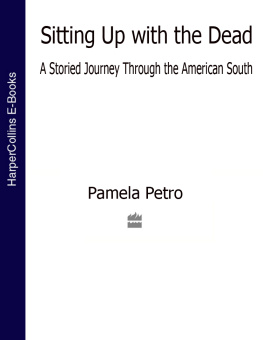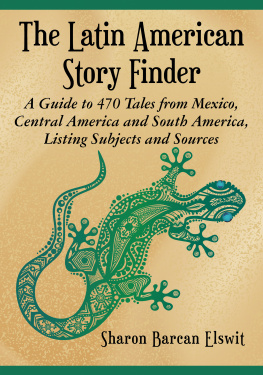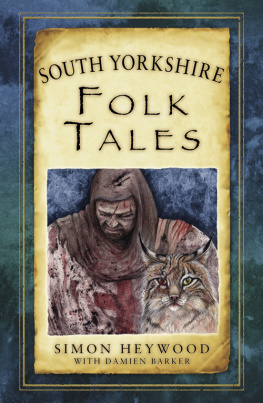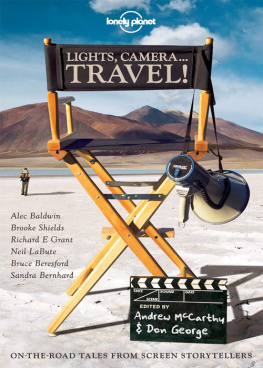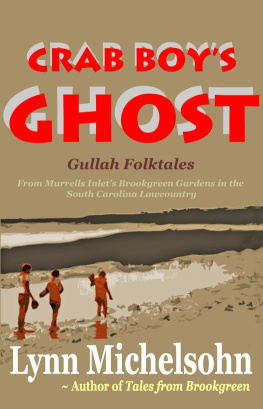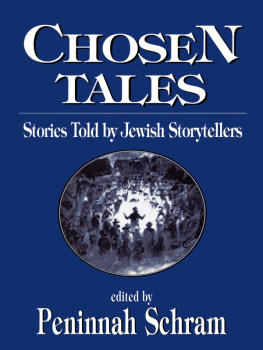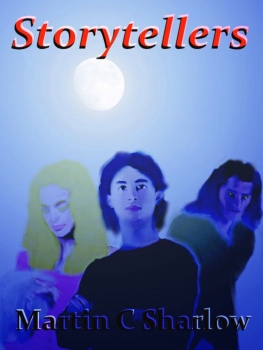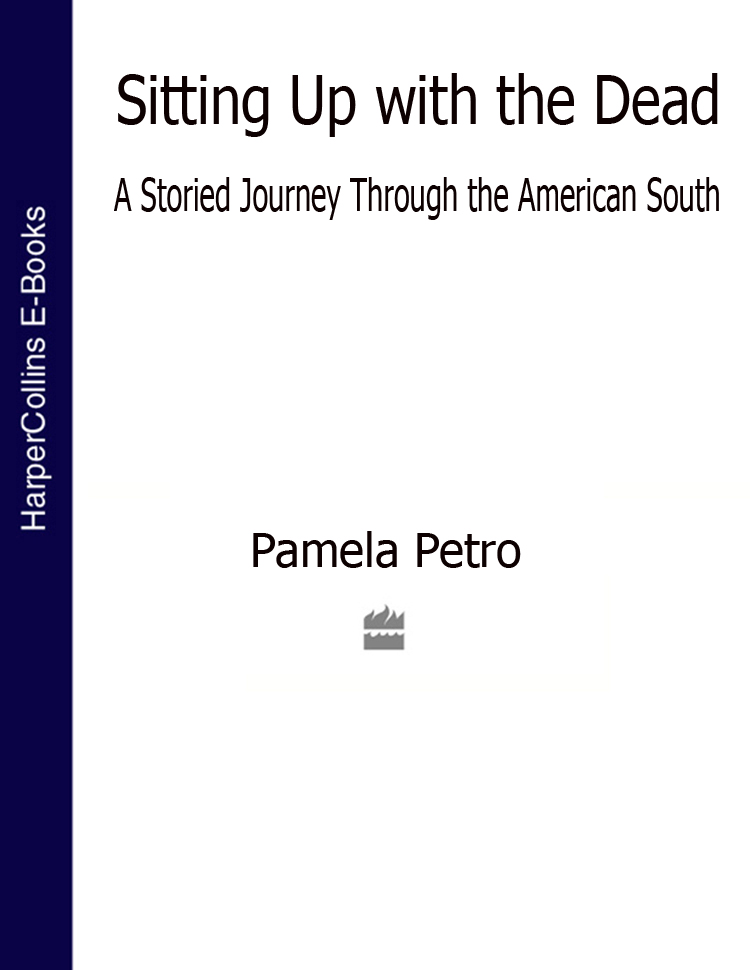For Marguerite Itamar Harrison,
who introduced me to the American South
and the Southern Hemisphere.
Contents
Writing can be a lonely occupation, but no book is ever written alone. More people contribute to its formation than can possibly be named and thanked: the waitress who called me sugar and made me laugh after a grim and sleepless night; the gas station attendant who told me dumb jokes about Boston; librarians who found countless books for me at Brown Universitys Rockefeller Library that were reputedly shelved, but actually were not. I can, however, thank all of the storytellers who appear in the following pages for sharing their tales and their wisdom with me. I have rarely met people happier in their profession, and their good humor not to mention their kindness and generosity made this book a pleasure to research. I reserve a special thank you for Vickie Vedder, who thought through the South alongside me, via e-mail, and who is one of the most insightful and generous people I have ever encountered.
I am also indebted to my wonderful friends such as Richard Newman, for the depth of his knowledge about African-American history and the Civil Rights Movement, and his willingness to share it; to Mary Diaz and Tom Ferguson, for hounding me to store my manuscript somewhere safe, for their enthusiasm and encouragement, and to Tom, especially, for the title; to Laura Pirott-Quintero, who thought of Chaucer when I said I was going to the South to collect stories; to Nancy Levitt-Vieira for sharing her aunts inspiring story-books with me; to Michael LaRosa, for his hospitality and Caladryl; and to Stella de Sa Rego for her knowledge of Louisiana. I am grateful as well to Tim Huebner, of the Department of History at Rhodes College in Memphis, for his insightful comments and bibliographical recommendations; to Debbie Dunn, for her intimate knowledge of the Bell Witch legend; and to the many state arts organizations that keep records of the storytellers in their midst (thanks especially to Cydney Berry of the South Carolina Arts Commission, John Benjamin of the Kentucky Arts Council, and Wayni Terrill of the Canton, Mississippi Welcome Center).
My deepest thanks also go out to my parents, Pat and Steve Petro, for their ceaseless encouragement, and for selflessly looking after Tenby, the canine terror, while I took a short break. I would also like to give thanks to the many Harrisons who helped me throughout the summer: to Randy and Heline, for their gracious hospitality and depth of biblical knowledge; to Nat and Tina, for the use of their beautiful house in Chattanooga; and especially to Marguerite, not only for staying home and caring for Tenby and dealing with computer glitches and serving as a telephone clearing house between me and countless storytellers but for joining me in the heat of August and making the final part of my journey so much more fun.
There are a few final thank yous to extend. The first goes to Adele Nelson and Sara Schaff, for inspiring this idea at a party in the summer of 1998. I would also like to mention Georgina Laycock at Flamingo, whose encouragement and hard work have meant so much to me, and my editor, Philip Gwyn Jones: without him this book would not exist. I thank him for his good humor, patience, keen judgement and diplomatic demeanor, and especially, for his friendship.
In America, perhaps more than any other country, and in the South, perhaps more than any other region, we go back to our dreams and memories, hoping it remains what it was on a lazy, still summers day twenty years ago and yet our sense of it is forever violated by others who see it, not as home, but as the dark side of hell.
WILLIE MORRIS, North Toward Home
Chaucer said it was in April that people long to go on pilgrimages. I was two months late; the desire didnt come upon me until June. His Canterbury-bound pilgrims were moved to seek the stranger strands/Of far-off saints, hallowed in sundry lands. A nice idea, but again, my journey differed in the details. No sundry lands for me. Like a contented lodger taken in by a big, unruly family, I lingered in just one place, or one household, you might say, within the United States: the American South. And I wasnt seeking saints.
What Chaucers pilgrims and I have in common is that we chose stories as our waymarks. I traveled from the Atlantic seaboard across the high country of Appalachia to the Gulf Coast, listening to Southern storytellers tell me their tales. Like the Knight, the Nun and the Wife of Bath, stories served all of us listeners and tellers alike as compasses of understanding to high country and low, to the past and present, to ghosts and the living, to right, wrong, and finally, to the way home. Chaucer knew that stories are the surest guides on any journey. They are, in fact, journeys themselves, leading out of the graspable, sweaty present into the vanished or imaginary worlds that support it. They give depth and shading to the here and now, comment on it, contradict it, and crosshatch all that we think we know about a particular place with the shadows of lives long gone and schemes of characters who never actually breathed, but flourish in communal daydreams.
Visit the old coal-mining region of eastern Kentucky these days and youll see the green hills roll by like a bright, inland sea, buoying up Interstate 64 and the service industries moved down from the Northeast to take advantage of lower taxes. Then find someone with a minute or two to spare, and ask him to tell you a local tale. Maybe over a cup of coffee, or lunch of tinned fruit and cottage cheese at a diner, hell spin out The Black Dog, which is about a coal-mine collapse and the heroic pet who protected his master even in death. Its a tale about community and the fear of outsiders, even outsiders offering help; about trust and the habitual acceptance of death and the forgotten bond between men and animals. This is the heritage of the upland, coal-mining South, and its invisible to the eye. But stories like The Black Dog are able to unearth an older Kentucky, one that still has relevance because it lives in the memories of service industry employees who drive to work on the Interstate, even though it may no longer be reflected in their daily landscapes. Travelers cant see it, but they can hear it if they listen.
Stories provide the connective tissues of a community, a region, or even a big, overgrown household like the South. They link the skin of the present to the unseen organs of the past, binding them into a continually shapeshifting body by turns beautiful and terrible and occasionally disturbingly oddly reminiscent of looking into a mirror. In my case, the glass reveals a surprise: a Northern woman, a Yankee who came of age in Britain, and now lives within the gravitational pull of Boston, Massachusetts the geographic butt of nearly every dumb joke I heard in the South (Hey, the Texaco cashier would say, as I paid for the gas Id just pumped, hear the one about the guy from Boston who bought his girlfriend a mink coat? Or, There was this guy from Boston with a chicken in which case Id affect a Southern accent and say I was from Virginia). Its a fair question to ask what I was doing there.
Tony Horowitz wrote in Confederates in the Attic that, The South is a place. East, West, and North are nothing but directions. When I read that my kneejerk reaction was to agree; I couldnt explain why, but I wanted to find out. In my previous book, a journey round the world in search of Welsh expatriates a group for the most part anchored by a concrete sense of identity I had written of myself, by way of contrast, To be an American, I sometimes feel, is to be blank, without a nationality or language. It was easy for me to write that sentence. I grew up in the suburban New York area, the heartland of the American communications industry that daily beams a facsimile of itself to the world. To be Northern, for me, is simply to be American. But Southerners at least those in print seemed to feel very differently, branded on the soul by the geography of their birth. Why? What place-bond did they have that I didnt? In

